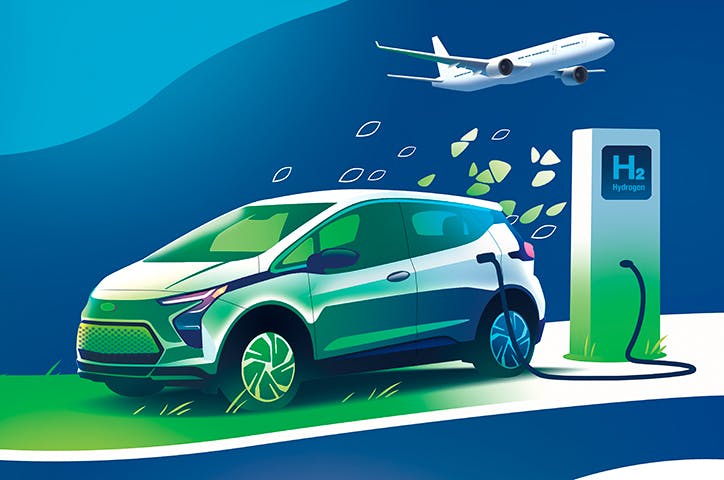Hydrogen fuel cells, not yet commonly used in engines, will have their role to play in post‑oil mobility options, alongside all‑electric vehicles. Arkema has anticipated this shift, developing materials and solutions that are already contributing to improving the industry's performance and business model.
The Hydrogen Council estimates that six million hydrogen tanks could be produced worldwide every year after 2030. For several years now, manufacturers like Renault and Hyundai have been marketing hydrogen cars, while local governments have launched experimental bus lines. Yet the sector still only accounts for a marginal share of global mobility. “The basic technologies for fuel cells, storing and transporting hydrogen, are essentially ready” explains Jean‑Paul Moulin, Materials Science Director at Arkema R&D. “The key issue now is how to produce fuel in a carbon‑free way.” While 96% of the hydrogen currently being used comes from the reforming of fossil‑based methane, renewable, water‑electrolysis production lines have yet to become economically viable. This is the subject of considerable global research and development efforts, fueled by the benefits that hydrogen, not as a source but as a “carrier” of green energy, would bring (see box p. 24).

